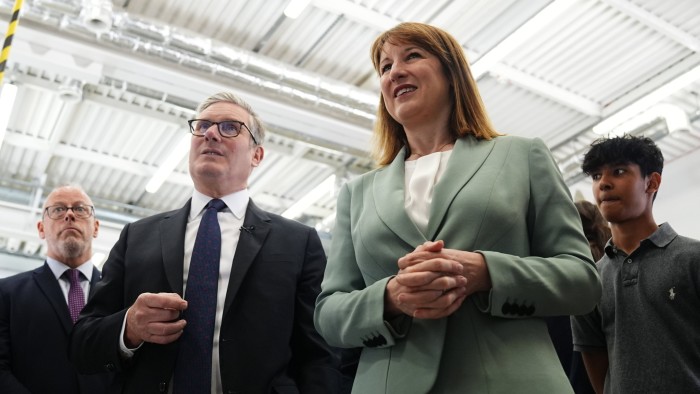Unlock the Editor’s Digest totally free
Roula Khalaf, Editor of the FT, selects her favorite tales on this weekly e-newsletter.
The author is the incoming director of the Institute for Fiscal Research
The cloud of numbers in Rachel Reeves’ spending overview obscured the large trade-offs. The chancellor rattled by means of an funding spree throughout quite a lot of departments, interspersed with identify checks for constituencies that may profit from particular tasks and reminders of all the roles that may be supported.
We knew that the federal government would enhance funding. It was all the time a key a part of how Labour supposed to fulfil their primary mission of driving up financial progress. What we didn’t know was that such a big share — over 60 per cent — of the extra spending would go to defence and internet zero.
The concentrate on these areas would possibly enhance progress. However it’s a mistake to suppose that an enduringly larger progress charge — not merely a much bigger financial system however one which will get bigger annually — is an inevitable final result. Merely constructing a inventory of weapons gained’t drive progress. And supporting households to modify to warmth pumps simply means producing the identical factor we already do (heat houses) in a cleaner, and doubtless dearer, method.
It’s also a mistake to suppose that investments are progress pleasant simply because they create jobs. Exterior a recession, extra jobs in a single space principally means fewer jobs some other place. Fairly than concentrate on how a lot work is required to get one thing produced, we should always concentrate on how a lot output every employee can create. We’ve a productiveness drawback, not a jobs drawback.
The economic technique launched final week units out the investments that purpose to place the UK as a pacesetter in sectors recognized as having high-growth potential, together with defence and clear power. Focused investments — particularly people who encourage innovation — have the potential to enhance progress and steer staff in the direction of extra productive areas. But when the federal government didn’t need extra defence functionality, would investing in weapons and nuclear submarines, even revolutionary ones, be one of the simplest ways to spice up financial progress? It appears unlikely.
The federal government may be extra assured that investing in infrastructure and R&D will enhance progress. The UK has lengthy underinvested in transport infrastructure relative to different developed economies. Higher connecting folks and locations and incentivising extra innovation is a path to larger productiveness.
The Division for Science, Innovation and Know-how will get a £3.8bn enhance in its annual capital price range by the top of the parliament, which ought to see spending outpace inflation. However the Division for Transport will get simply £1.8bn. Falling spending on HS2 will liberate assets for different tasks, however the total transport price range is getting a real-terms minimize. Each settlements are dwarfed by the additional £14bn going to defence and the £9bn going to the Division for Vitality Safety and Internet Zero.
We ought to be cautious of a story that makes it sound as if there aren’t any trade-offs. Extra funding for defence and clear power means much less elsewhere. As the economic technique itself acknowledges, progress is just not the one purpose. Sir Keir Starmer has different priorities too, they usually don’t come low-cost.
Having picked the trail it needs to tread, the federal government should now flip its consideration to making sure that each one the growth-friendly tasks are delivered on time and on price range. That basically is a high precedence.
The federal government is eager to trumpet the cumulative £113bn of extra funding that may happen over this parliament, (when put next with plans made by the Conservatives in early 2024). They’re not promoting the extra £140bn of borrowing that’s forecast over the identical interval. Elevated authorities funding makes larger progress extra possible. Larger debt and curiosity funds make progress extra vital.

